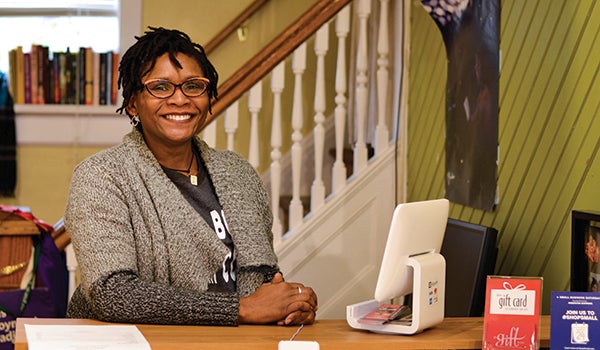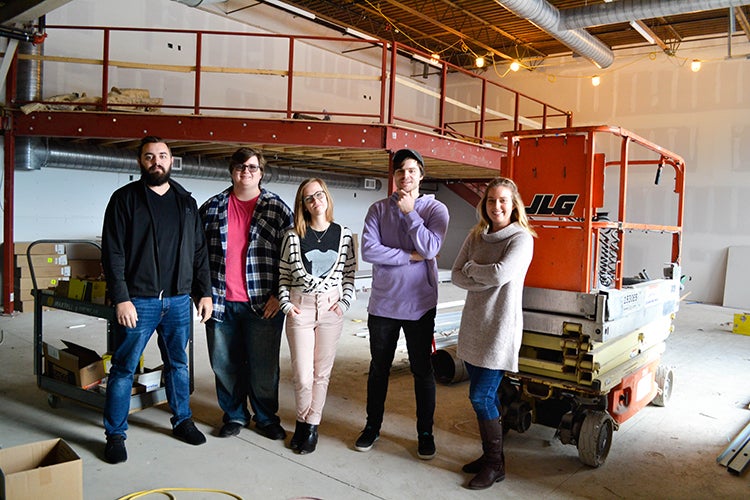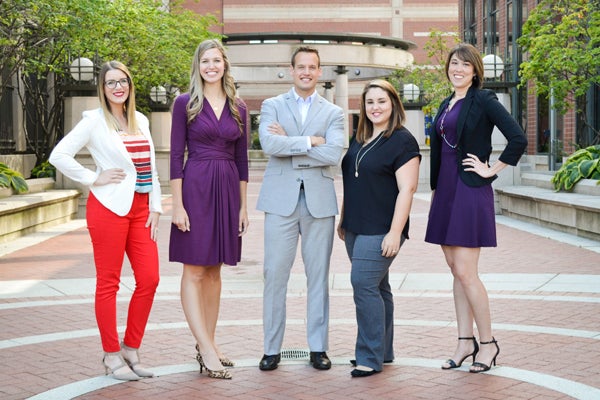At first glance, the vibrant children’s books on display at The Brain Lair look the same as any other locally owned bookstore.
The covers depict children playing, going on adventures and dealing with life’s everyday challenges. Given a closer look, though, one will see that none of the children look the same. Each book, especially those that are front-facing, shows children of different ethnicities and genders.
The Brain Lair Bookstore’s mission is to provide children — and some adults — with culturally relevant stories that promote inclusivity.
The store is owned and operated by Kathy Burnette, a longtime South Bend area librarian, who has worked at Northpoint Elementary School, Discovery Middle School and Stanley Clark School. It was as a librarian that she first put into practice exposing children to inclusive books. She looks for books that represent all the various different types of people, from skin color to nationality to various disabilities.
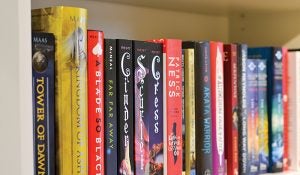
“I try to find something that everybody can find themselves in, at least one or two books,” Kathy says.
She says this is a valuable service for area children, especially those who aren’t white, because it is less common for them to be depicted in books. According to Kathy, when children of color are featured in children’s books, they are often put in situations where they need someone to rescue them.
Kathy experienced this herself. As a black girl who grew up on the south side of Chicago, she found a productive outlet in reading, but even in a school that was predominately black, she says that most of the books available to her had white characters.
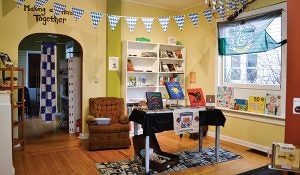
“When you see yourself in the book, you feel validated in your place in society because it’s hard to imagine something that you haven’t seen,” she says. “So, if you’re not reading it, not seeing it on television, then you don’t know where you fit, and so you’re always struggling with that.”
Kathy carefully selects books, utilizing her years of experience as a librarian to find a steady supply of books that children are willing and even happy to read. A big part of this is that she ultimately wants them to pick books they are interested in, as opposed to being told what to read, which decreases a child’s desire to pick up a book.
The hope is that children and adults will go beyond reading books with characters that look like them and explore the books with characters that look like those who are different, because that is when reading inclusive books will help children build compassion.
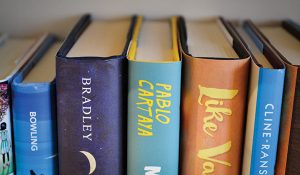
“The more you read about other people, the more you’re empathetic towards them,” Kathy says. “So, if not reading [inclusive books], that’s how we still have a country that’s so mired in racism and everything else right now. It’s because we don’t know enough about other people.”
The only type of books that are not represented in her store are the religious ones, because Kathy says it’s too difficult to determine which books are appropriate and representative of every religion.
Currently, the store is located in an old two-story grayish-green house on Jefferson Avenue, just east of downtown South Bend. In addition to being a bookstore, it is designed to be a place where people can hang out and experience open-minded people. Other than books, there is also a mixture of games, literature-themed clothing and items made by local artisans.
This space is temporary, though, and Kathy is in search of a new space to continue her work of spreading inclusive books to the South Bend community. She plans to be somewhere new by March 2019, when she is planning a small book signing for Mayor Pete Buttigieg’s upcoming book “Shortest Way Home: One Mayor’s Challenge and a Model for America’s Future.” Most of all, she wants to create a larger gathering space than the quaint current location can provide.
“One of the reasons I want my own place is so I can build a nice community space, so people can just come in, drink coffee — because I like coffee — read and just hang out,” Kathy says. “When Barnes & Noble used to be on Grape Road, we went there every week to buy something and read.”
However, Kathy says she doesn’t need a store to spread the good word about inclusive books. Even before she owned the store she was already putting together lists and collections of inclusive books for individual children, classrooms and school librarians. She builds subscription boxes with personalized books that she puts together based on child’s interest.
Whether Kathy is at her store or putting together subscription boxes, her goal is the same.
“My mission is to have the future generation be empathetic and also then help them build community,” she says. “I feel like if we all work together to do something that we could really make some positive, powerful, long lasting changes. And I don’t know what that will look like, but I know that this is a part of it.”

Photography by Emily Sobecki

